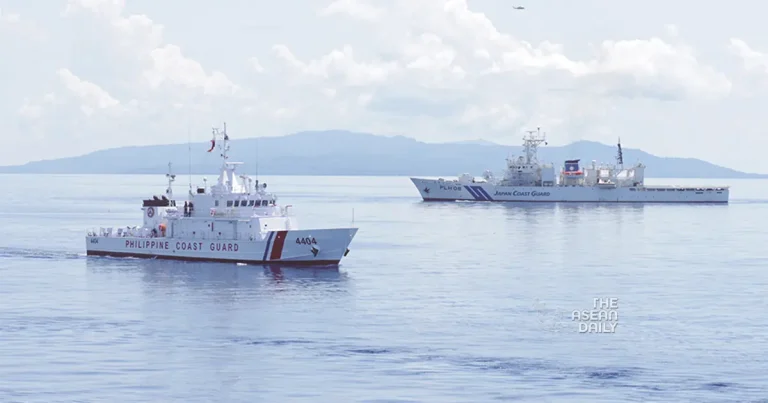9-4-2024 (MANILA) The forthcoming strategic dialogue between the United States, Japan, and the Philippines in Washington D.C. this week is set to fortify Manila’s coastal defense capabilities, according to Philippine Ambassador to the U.S. Jose Manuel Romualdez. In a statement issued on Tuesday, Romualdez underscored the pivotal role this trilateral summit will play in modernizing the Philippine Coast Guard.
The Philippine Coast Guard has been at the forefront of patrolling the contentious West Philippine Sea, often encountering Chinese vessels during resupply missions to the BRP Sierra Madre stationed at Ayungin Shoal. While the Philippines maintains defense partnerships with both the U.S. and Japan, this marks the first time the three nations have convened for a summit of this magnitude.
“This cooperation is going to aid us in modernizing not just our armed forces and air force, but also our navy and our coast guard,” Romualdez remarked during an interview on ANC’s ‘Headstart’ programme. “This is an integral part of our efforts to defend ourselves from any aggression emanating from other countries.”
President Ferdinand Marcos Jr. has recently established the National Maritime Council, a policy-setting body tasked with addressing the “range of serious challenges” confronting Philippine waters. Notably, the council has been authorized to accept donations and aid from local and foreign sources to bolster maritime security, a move that the President’s sister, Senator Imee Marcos, cautioned could “lead the country down a dangerous path.”
Over the weekend, naval and air assets from the Philippines, Australia, Japan, and the U.S. conducted joint maritime drills in Philippine waters. Ahead of the summit, China’s foreign ministry voiced its opposition to “the cobbling together of exclusive small circles and confrontation between different groups in the region.”
However, Romualdez refuted these concerns, asserting that the three countries “are not doing anything out of the ordinary.” He expressed regret that Beijing perceives the summit as “directed towards them.”
The White House has affirmed that the talks will “advance a trilateral partnership built on deep historical ties of friendship, robust and growing economic relations… and a shared vision for a free and open Indo-Pacific.”
Despite a 2016 international court ruling invalidating China’s expansive claims in the South China Sea and siding with the Philippines, Beijing has remained resolute in its assertion of sovereignty over the disputed waters.
During the interview, Romualdez stated that President Marcos seeks to “find ways and means to continue… a dialogue with China, the baseline being that we have to recognize the fact that we are protecting merely our territories.” He added that Marcos favors a “multilateral approach” to address the situation in the West Philippine Sea, which forms part of the larger South China Sea region.
“The bottom line is we are getting together with many of our allies who believe in the same rule of law,” Romualdez affirmed.
While activist groups like the Bagong Alyansang Makabayan condemn Chinese aggression in the West Philippine Sea, they also caution against being embroiled in the simmering rivalry between the U.S. and China.




